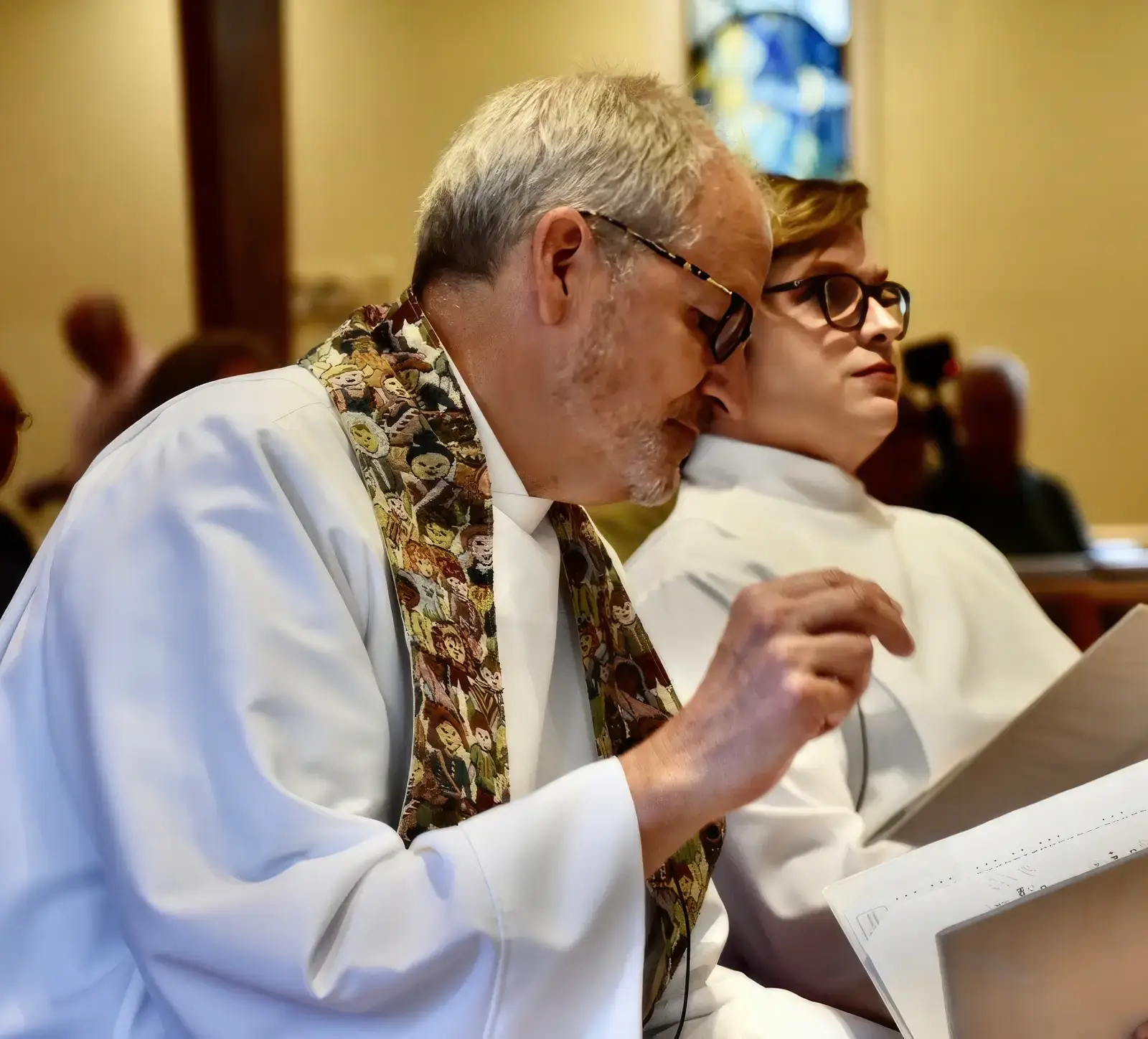WELCOME HOME

WELCOMETO ST. LUKE
St. Luke Lutheran Church is an inclusive Christian Community. We encourage all members to participate fully in the life and leadership of the church. St. Luke welcomes and supports all races, sexual orientations, gender identities, gender expressions, those with disabilities and people of all ages and stages of faith. We are open to calling a rostered leader from this diverse population. We are committed to fostering racial equity and work together for justice, peace and mercy. We affirm the worth and dignity of all people.
St. Luke offers members and their families space for weddings and blessings. We financially support programs and organizations that care for all of God's beloveds including Habitat for Humanity, Church Health, and Memphis Inter-Faith Association. We believe that children require special care, and that St. Luke will be a safe sanctuary for all children. We invite all who seek God's love and grace to share in and build a relationship with Jesus Christ. We believe through our openness that we will grow in faith and live our lives by Christ's words to love one another as God loves us.
"I give you a new commandment, that you love one another. Just as I have loved you, you also should love one another. By this everyone will know that you are my disciples, if you have love for one another."
(John 13:34-35)
WORSHIPWITH US
Service Times
Sunday School: 9:00 am
Worship Service: 10:00 am
Directions
2000 North Germantown Pkwy
Cordova, TN 38016

ENGAGE IN MINISTRY
KIDS
St. Luke strives to have a safe and nurturing environment for young children to learn about God and grow in His wisdom. We understand that children have unique needs and interests, and we strive to provide engaging and interactive programs that cater to those needs.

ADULTS
We believe that faith is not just about attending church once a week, but about building deep and meaningful connections with other believers. Our programs and activities provide opportunities for adults to connect with each other and with God, and to grow in their relationship with Him.

YOUTH
St. Luke believes every young person is valuable and worthy of love, no matter who they are or where they come from. We strive to create a safe and inclusive space for our youth where they can explore their faith, ask hard questions, and grow in their relationship with Jesus.

SERVICE
We are dedicated to serving our Memphis community directly and making a positive impact in the world. We believe that as followers of Jesus, we are called to serve others and to be a light in the world.


OURMISSION
At St. Luke Lutheran Church, we will accept and love all people as we grow as disciples, serve others, give generously, care, and share the life and resources God entrusts to us.
We embrace a culture of acceptance, love, and generosity. As disciples, we seek to grow in our faith and serve others in need. We also strive to be good stewards of the resources God has entrusted to us, using them to care for those around us and to share the love of Christ.